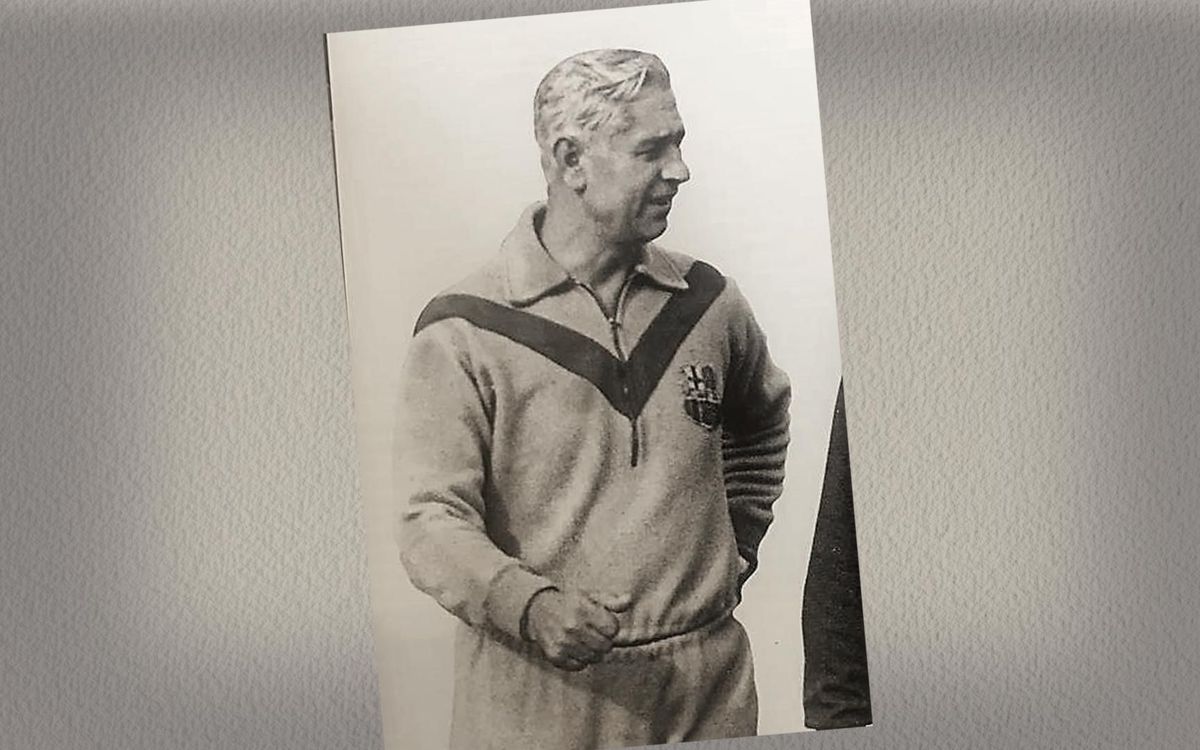Ferdinand Daucik: Slavia captain, Barça manager
- label.aria.viber Viber
- label.aria.whatsapp WhatsApp
- label.aria.twitter Twitter
- label.aria.facebook Facebook
- label.aria.messenger Messenger
- label.aria.link label.aria.tick Copy link
Born on 30 May 1910 in the city of Sahy (then part of the Austro-Hungarian Empire and now in Slovakia, Ferdinand Daucik was the Barça manager in the famous season of the Five Cups, when Laszlo Kubala was the star of the team that won every trophy going in 1951/52
Daucik came to the club 1950 at the same time as the great Kubala, and his fortunes were very much tied to the Hungarian striker, who would not be given clearance to play official games until April 1951. The result was one of the most legendary Barça teams of all-time, with the likes of Ramallets, Biosca, Segarra, Seguer, Gonzalvo III, Basora, César and Kubala himself delighting the crowds.
Daucik left the club at the end of the 1953/54 season after winning two leagues and three cups, plus the Latin Cup and two Eva Duarte Cups.
He went on the manage a host of different clubs, mainly in Spain, in 553 games, 488 of those in the first division, and eventually retired in 1977 as coach of Barcelona-based outfit Sant Andreu. He died in the town of Alcalá de Henares near Madrid on 14 November 1986.

Slavia captain
But before sitting on the Barça bench, Daucik had put together an impressive curriculum in his homeland. He played for Slovan Bratislava (then called CsSK Bratislava) for five seasons and was at Slavia Prague from 1933 to 1942, being captain and later player-manager for some of those years before hanging up his boots at the club where his greatest achievement was to win the Mitropa Cup, the precursor to the champions League.
He was part of the Czechoslovakian national side that reached the 1934 World Cup Final and some would say were unfairly defeated by host nation Italy.
In 1942, Daucik went in coaching in the midst of the convulsions of World War II and the post-war conversion of Czechoslovakia to communism. He’d end up coaching a team called Hungaria, made up of Eastern European refugees looking for professional opportunities in the west. Kubala was part of that side and it was following a series of friendlies in Spain that both ended up being recruited by the Catalan club.

- label.aria.viber Viber
- label.aria.whatsapp WhatsApp
- label.aria.twitter Twitter
- label.aria.facebook Facebook
- label.aria.messenger Messenger
- label.aria.link label.aria.tick Copy link

